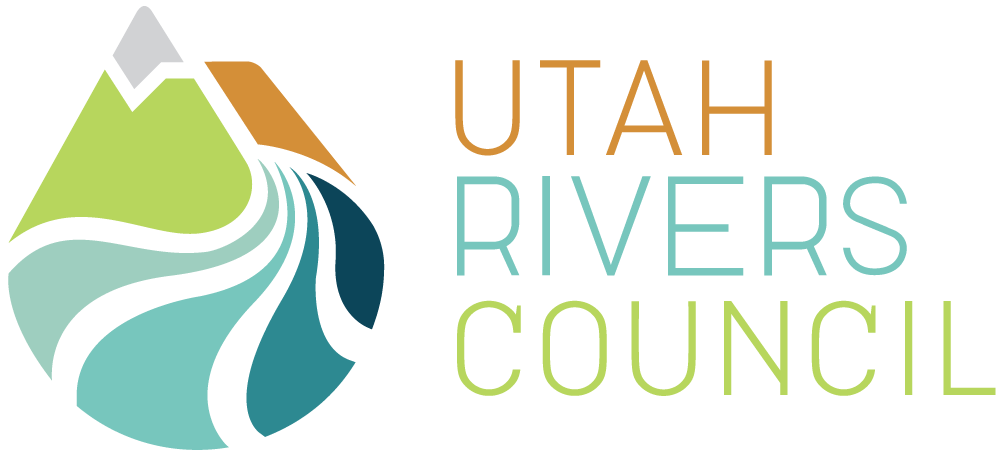Water Bills for 2020 Utah Legislative Session
This legislative session, there are dozens of bills being debated that impact the future of water and the well being of Utah’s environment. We’ve broken down each of the bills, including relevant information you should know and links to each bill if you want to read further! Currently, there are two bills that the Utah Rivers Council (URC) will focus our lobbying efforts on at the Capitol. Both bills provide common sense management to water systems, which in turn will help to conserve water. Both bills are inexpensive and will greatly reduce our water use, proving to be strong alternatives to $2.9 billion Bear River Development and $3+ billion Lake Powell Pipeline.
URC Lobbying Efforts
HB 40- Water Loss Accounting Act (Representative Ballard)
The bill, created in partnership with the American Water Works Association, the preeminent water authority in the country, creates an advisory committee that provides technical assistance to water systems that are required to prepare and submit annual water loss accounting reports. Additionally, it implements an accounting software that helps water providers identify where their limited resources can be used for the greatest value in an effort to conserve water. "The water losses that are to be accounted for and reported annually include: water lost through leaks, breaks, overflows, etc.; water lost through the unauthorized use of water; and water lost through metering inaccuracies and data handling errors.” Utilizing this management tool to provide insights on fundamental flaws in our water system will increase the efficiency of water systems throughout the state, conserving water in the process.
* This bill is in committee tomorrow and will be discussed and voted on! Contact your legislators ASAP, especially members of the Natural Resources, Agriculture, and Environment Committee!
SB 51- Secondary Water Requirements (Senator Anderegg)
SB 51 requires all water suppliers that provide pressurized secondary water (untreated water for outdoor landscape use only) in first and second class counties to meter water use. Currently, the State has limited information about how much secondary water is being used. Studies show that simply knowing how much water is being used in secondary systems reduces use by 40 percent, often times even more. This has the potential to conserve a significant amount of water and extend our current water supply, proving to be just one of the many alternatives to Bear River Development and the Lake Powell Pipeline.
Please contact your legislators and let them know you support HB 40 and SB 51 and to vote YES on these bills, that you want to prioritize water conservation, and that you are opposed to wasting billions of taxpayer dollars on unnecessary Bear River Development and Lake Powell Pipeline until all other inexpensive alternatives are implemented first.
The following is a brief overview of other water bills that will be debated this session.
1. HB 41- State Water Policy Amendments (Representative Stratton and Representative Hinkins)
Offers a guide to policy makers to follow as they plan for Utah’s water future. It discusses conservation but also explicitly mentions both Bear River Development and the Lake Powell Pipeline as options in State code. Please contact your legislators and let them know that these destructive, excessive projects should not be in State code and that conservation needs to be prioritized.
2. HB 166- Watershed Councils (Representative Hawkes)
The new Act would divide the state into 12 different watersheds or drainage basins and would create a State Watersheds Council with defined membership. The Act would also allow creation of local watershed councils on a voluntary basis. The primary purpose of these councils is to provide a forum for discussions on water policy and water resource issues. We are unsure of all of the impacts this bill will have, but would love to see the conservation community on these councils.
3. SB 52- Agricultural Water Use Amendments (Senator Anderegg)
Requires the Utah Division of Water Rights to compile and provide a report about agricultural use of water to the Senate. This report will include data such as how much water is used on drip irrigation vs flood irrigation and will help Utah understand and plan for its future water needs.
4. SB 26- Water Banking Amendments (Senator Iwamoto and Representative Hawkes)
Used in states across the west, water banking is a market tool that facilitates the voluntary and temporary transfer of water rights from one user to another. Utah will be one of the last states in the west to implement such a program. Water banking has potential to be very beneficial for Utah, but only if it is implemented correctly.
5. HJR 3- Proposal to Amend the Utah Constitution -Water Resources of Municipalities (Representative Stratton and Senator Okerlund)
Allows water right exchanges and the designation of service areas outside of the municipal limits, and officially recognizes the long-utilized practice of exchanging water rights and sources by municipalities.
6. HB 88- School and Child Care Center Water Testing (Representative Handy)
House Bill 88 provides water quality testing of all water taps at schools and childcare centers by 2022. The testing is targeted at understanding and reducing lead levels in water consumed by children.
7. HB 28- Legislative Water Development Commision Sunset Amendments (Representative Stratton and Senator Okerlund)
8. HB 39- Agricultural Water Optimization Task Force Amendments (Representative Snider and Representative Hinkins)
9. HB 168- Public Water Supplier Relocation Amendments (Representative Hawkes)
10. SB 63- Recreational Activities Related to Public Waters (Senator Sandall)
As you can see, there are several opportunities for Utah to prioritize water conservation and prevent unnecessary spending on destructive projects like Bear River Development and Lake Powell Pipeline. This is a great chance to get involved in our work. If you are interested in joining us as a citizen lobbyist, please reach out to Matt Stephens our grassroots organizer, and we will find a time for you to join us at the Capitol. As always, thank you for your support!


